IMATINIB (APOTINIB) Tablet
$72.00
This description provides an overview of Imatinib (Apotinib) tablets in 100 mg and 400 mg strengths, including indications, dosage, administration, contraindications, warnings, precautions, adverse reactions, drug interactions, and storage information. Patients should consult their healthcare provider for personalized information and guidance regarding the use of Imatinib.
Description
Imatinib is a medication classified as a tyrosine kinase inhibitor. It is available in tablet form for oral administration.
Indications: Imatinib is indicated for the treatment of various cancers and other medical conditions. Specifically, it is used for the following indications:
- Chronic Myeloid Leukemia (CML): Imatinib is indicated for the treatment of newly diagnosed Ph+ chronic phase CML, Ph+ acute lymphoblastic leukemia (ALL) with resistance or intolerance to prior therapy, and accelerated phase or blast phase CML in adult patients.
- Acute Lymphoblastic Leukemia (ALL): Imatinib is indicated for the treatment of relapsed or refractory Ph+ ALL in pediatric patients aged 1 year and older.
- Gastrointestinal Stromal Tumors (GIST): Imatinib is indicated for the treatment of unresectable and/or metastatic KIT-positive GIST.
- Dermatofibrosarcoma Protuberans (DFSP): Imatinib is indicated for the treatment of adult patients with unresectable, recurrent, or metastatic DFSP.
- Myelodysplastic/Myeloproliferative Diseases (MDS/MPD): Imatinib is indicated for the treatment of adult patients with myelodysplastic/myeloproliferative diseases associated with platelet-derived growth factor receptor gene rearrangements.
- Hypereosinophilic Syndrome (HES) and/or Chronic Eosinophilic Leukemia (CEL): Imatinib is indicated for the treatment of adult patients with HES and/or CEL who have the FIP1L1-PDGFRα fusion kinase (mutational analysis or FISH demonstration of CHIC2 allele deletion) and for patients with HES and/or CEL who are FIP1L1-PDGFRα fusion kinase negative or unknown.
- Aggressive Systemic Mastocytosis (ASM): Imatinib is indicated for the treatment of adult patients with ASM without the D816V c-Kit mutation.
- Chronic Eosinophilic Leukemia (CEL): Imatinib is indicated for the treatment of adult patients with CEL who have the FIP1L1-PDGFRα fusion kinase (mutational analysis or FISH demonstration of CHIC2 allele deletion).
- Systemic Mastocytosis (SM): Imatinib is indicated for the treatment of adult patients with aggressive systemic mastocytosis (ASM) without the D816V c-Kit mutation or with c-Kit mutational status unknown.
- Recurrent Gastrointestinal Stromal Tumors (GIST): Imatinib is indicated for the treatment of adult patients with unresectable, recurrent, and/or metastatic GIST after failure of imatinib therapy.
- Hepatocellular Carcinoma (HCC): Imatinib is indicated for the treatment of adult patients with hepatocellular carcinoma (HCC) who have failed prior systemic therapy.
Mechanism of Action: Imatinib inhibits the activity of various tyrosine kinases, including the BCR-ABL fusion protein, c-Kit, and platelet-derived growth factor receptor (PDGFR). By inhibiting these tyrosine kinases, Imatinib interferes with the signaling pathways that are involved in the growth and proliferation of cancer cells.
Administration: Imatinib tablets should be taken orally, usually once daily with a meal and a large glass of water. The tablets should be swallowed whole and not crushed or chewed.
Dosage and Administration:
- The recommended dosage of Imatinib varies depending on the indication for which it is being used.
- The dosage may need to be adjusted based on the patient’s individual response to treatment and any adverse reactions experienced.
- It is important for patients to follow the dosage instructions provided by their healthcare provider.
- Patients should not adjust their dosage or stop taking Imatinib without consulting their healthcare provider.
Contraindications: Imatinib is contraindicated in patients with hypersensitivity to Imatinib or any of the excipients in the formulation.
Warnings and Precautions: Before initiating treatment with Imatinib, healthcare providers should consider the following:
- Hepatotoxicity: Imatinib can cause hepatotoxicity, including liver enzyme elevations and liver failure. Liver function tests should be monitored regularly during treatment.
- Myelosuppression: Imatinib can cause myelosuppression, including neutropenia, thrombocytopenia, and anemia. Complete blood counts should be monitored regularly during treatment.
- Fluid retention: Imatinib can cause fluid retention, including pleural effusion and edema. Patients should be monitored for signs and symptoms of fluid retention during treatment.
- Cardiotoxicity: Imatinib can cause cardiotoxicity, including congestive heart failure and left ventricular dysfunction. Cardiac function should be monitored regularly during treatment.
- Renal toxicity: Imatinib can cause renal toxicity, including acute renal failure and renal insufficiency. Renal function should be monitored regularly during treatment.
Adverse Reactions: The most common adverse reactions associated with Imatinib treatment include edema, nausea, vomiting, muscle cramps, musculoskeletal pain, diarrhea, rash, fatigue, abdominal pain, and headache.
Drug Interactions: Imatinib may interact with other medications, including strong inhibitors or inducers of cytochrome P450 3A4 (CYP3A4) and medications that prolong the QT interval. Patients should inform their healthcare provider about all medications they are taking, including prescription, over-the-counter, and herbal supplements, before starting treatment with Imatinib.
Storage: Imatinib tablets should be stored at controlled room temperature (25°C) in the original container, protected from light and moisture. Keep out of reach of children.
Manufacturer: Apotinib tablets are manufactured by Apotex Inc.
This description provides an overview of Imatinib (Apotinib) tablets in 100 mg and 400 mg strengths, including indications, dosage, administration, contraindications, warnings, precautions, adverse reactions, drug interactions, and storage information. Patients should consult their healthcare provider for personalized information and guidance regarding the use of Imatinib.
Additional information
| Strength | 100mg, 400mg |
|---|
Only logged in customers who have purchased this product may leave a review.


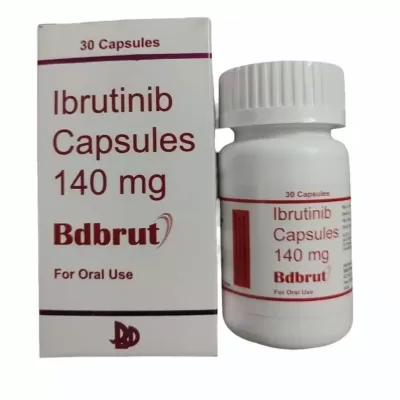




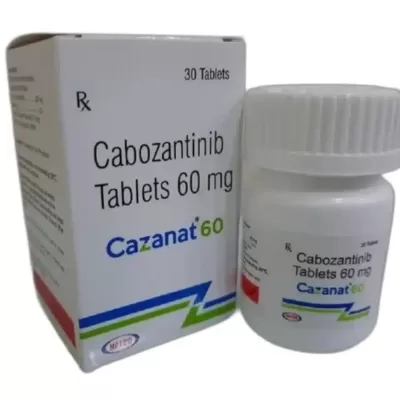
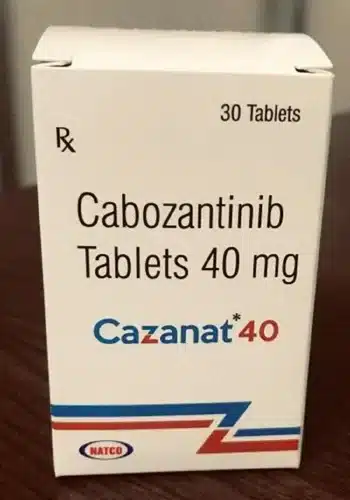
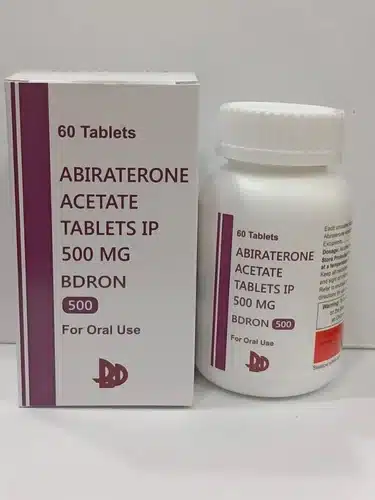
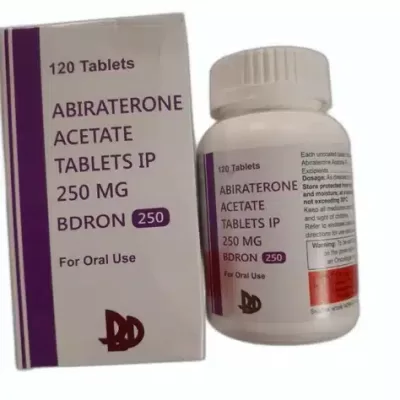

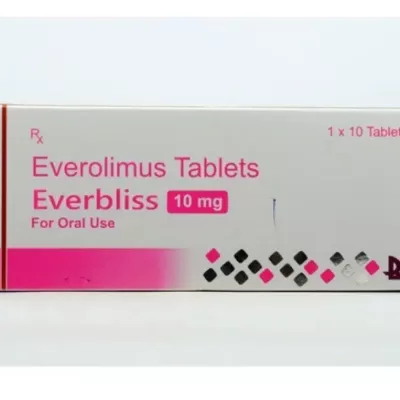
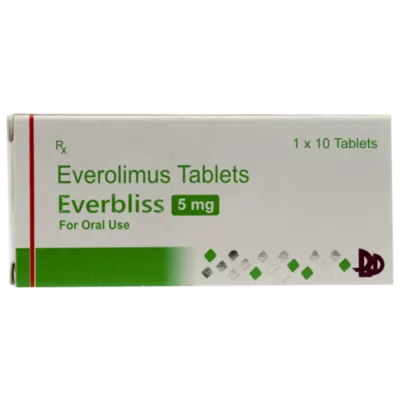
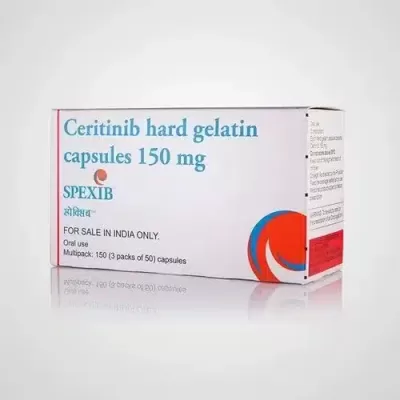
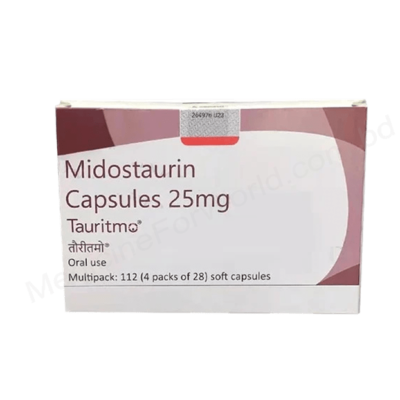

Reviews
There are no reviews yet.